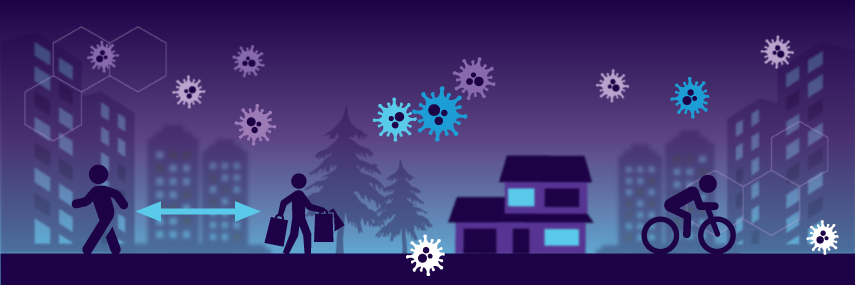Getting ready before a pandemic

There are many things we can do in advance to prepare for a pandemic. These tips work best if they are done before one begins, but are also worth doing while a pandemic is underway.
On this page
- Make an emergency plan
- Build an emergency kit
- Practice good hygiene
- Practice good sneeze etiquette
- Take care of your physical health
Make an emergency plan
An emergency plan is a playbook for how you and your household will respond to a disaster. It's one of the best steps you can take to prepare for a pandemic. Knowing what to do will reduce anxiety and help keep you focused and safe.
Make an emergency plan with our resources including a printable fill-in-the-blanks Home Emergency Plan or the interactive Emergency Ready Planner.
Build an emergency kit
The same emergency kit you have for earthquakes or other emergencies can be useful for pandemics too. For most emergencies, you should gather enough supplies to stay at home for at least 3 to 7 days.
During a pandemic, you may need to stay home longer if you need to self-isolate. Adding additional food to your kit can help make that possible on short notice. Also consider pandemic-specific items, like extra hand sanitizer and face masks.
- Surface and household cleaners
- Paper towels
- Laundry detergent
- Alcohol-based hand sanitizer
- Disinfectants
- Tissues
- Soap
- Face masks
- Additional food (so you can manage comfortably at home if you're unable to go out)
Practice good hand hygiene
Washing your hands has been shown to significantly decrease the frequency of colds, influenza (the “flu”) and other infections. Not only will it help keep you healthy, it will help prevent the spread of infectious diseases to others.
- Follow the B.C. Centre for Disease Control's advice on good hand hygiene
Practice good sneeze etiquette
Diseases can spread when someone who is infected coughs or sneezes. Even if you don’t think you’re sick, it’s still important to practice cough etiquette. Cough into your elbow or cover your mouth and nose with a disposable tissue when you sneeze. Immediately dispose of all used tissues in an appropriate waste bin and wash your hands right away.
Take care of your physical health
One of the best defenses against a disease is a healthy immune system and good physical health. Maintain your physical health through a healthy diet, rest and physical activity:
- Follow Health Canada's food guide
- Try to get 7 to 8 hours of sleep each day
- Follow Health Canada's recommendations for physical activity
